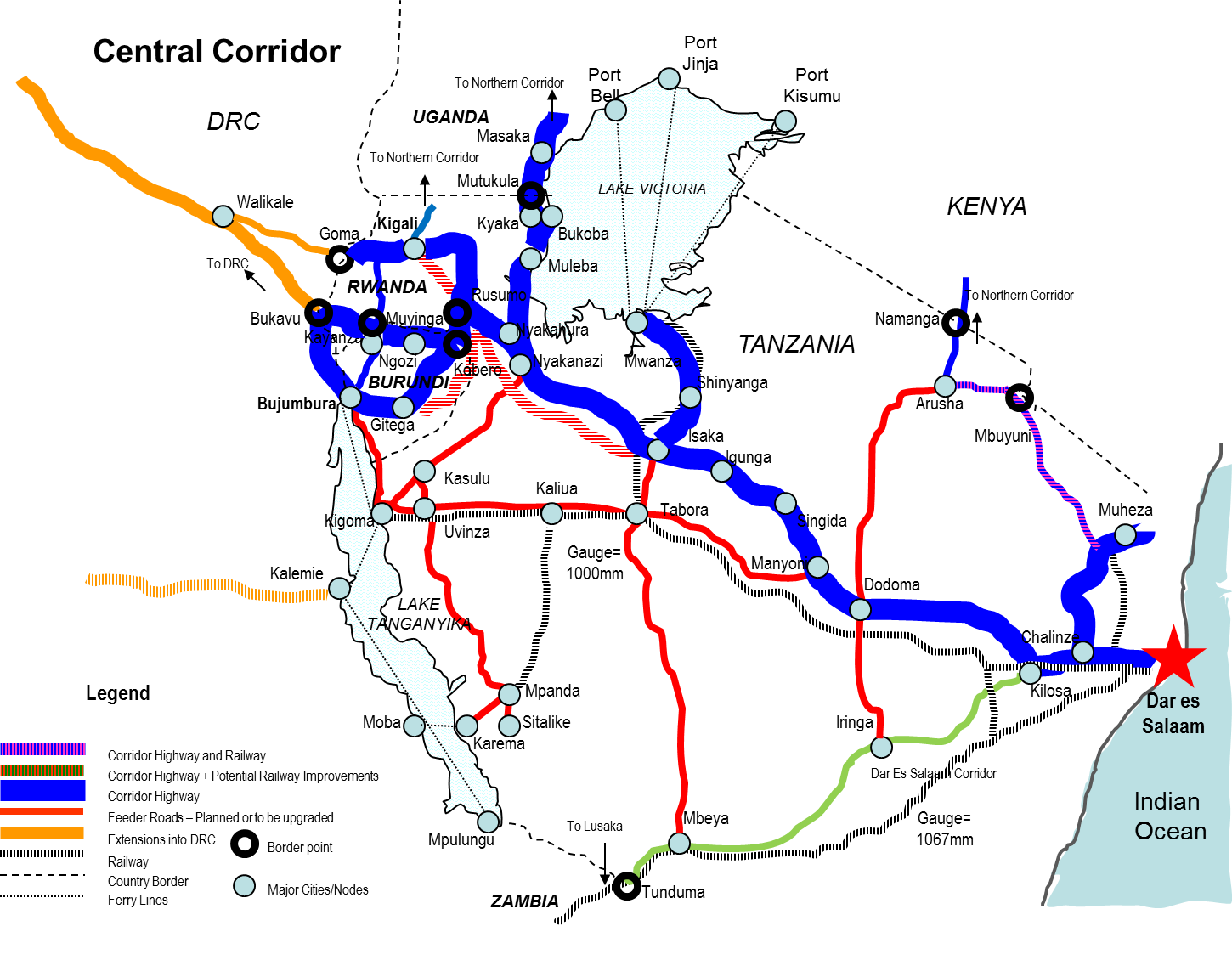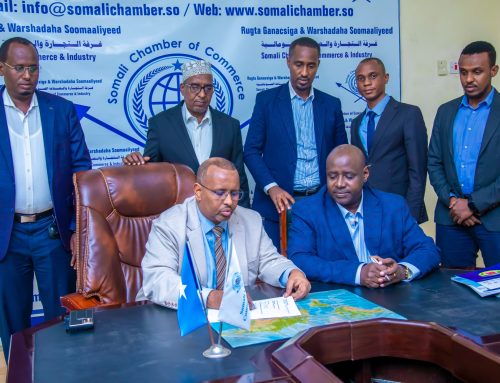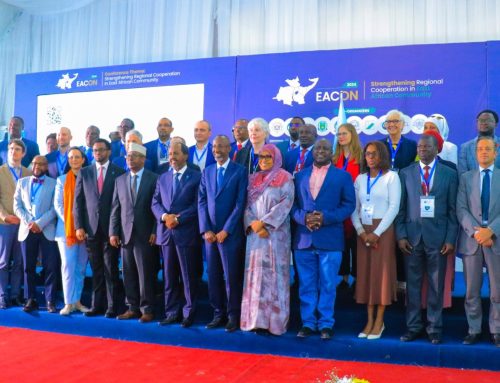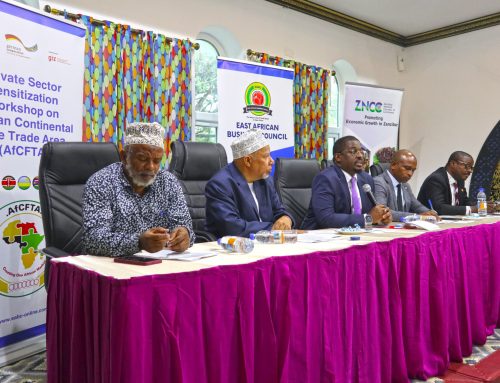
Interview with Adv. OKANDJU OKONGE Flory
Executive Secretary Central Corridor Transit Transport Facilitation Agency
About Central Corridor Transit Transport Facilitation Agency (CCTTFA)
The Central Corridor Transit Transport Facilitation Agency is an Inter-governmental agency and a Corridor Management Institution (CMI) created through the cooperation arrangements among the five Governments of the Republic of Burundi, the Democratic Republic of the Congo (DRC), The Republic of Rwanda, The United Republic of Tanzania and the Republic of Uganda. It aims at accelerating the development of the Central Corridor and it is governed by the Central Corridor Transit Transport Facilitation Agreement signed by the respective Governments on the 2nd September, 2006.
- Tell us about your Central Corridor Transit Transport Facilitation Agency (CCTTFA)
The Central Corridor route connects the Port of Dar es Salaam by road, rail and inland waterways to Burundi, Rwanda, Uganda, the eastern part of DRC, and the western part of Tanzania itself. The corridor forms part of the backbone of the regional transportation system in East Africa and the Eastern part of Central Africa. - What was the impact of COVID-19 containment measures on the Central Corridor?
i). Central Corridor member states of Burundi, Democratic Republic of Congo (DRC), Rwanda, Tanzania and Uganda all reported their first cases of COVID-19 in the month March 2020, with the first global reported case of the pandemic originated from Wuhan Province in China in December 2019. Central Corridor member governments took various measures to mitigate the spread of the virus such as closing borders, banning international flights, implementing forms of lockdowns and curfews and enforcing adherence to strict health preventive measures. These actions and directives were expected to slow down the movement of cargo along the Central Corridor and eventually affecting the volume of imports and exports. Tanzania did not close its borders therefore enabling continuous movement of cargo to Central Corridor member countries.
ii). COVID-19 Global Pandemic affected Transit Time to Destinations during First Quarter of 2020. An increased transit time of more than 2 days was observed in the month of March and April 2020 for all destinations of the Central Corridor due to the strict measures undertaken by governments to limit the spread of COVID-19 virus across borders. The measures included mandatory testing and screening at the border posts and designated areas for truck drivers, mandatory quarantining for truck drivers found to have contracted COVID-19 as well as mandatory stops at designated areas before entering major towns and cities. All these measures caused major delays leading to more days being spent on transit affecting smooth movement of cargo.
iii). A 90% Increase in Dwell Time at the Port of Dar es Salaam was observed due to COVID-19 Global Pandemic. Dwell time refers to the total time spent by containerized cargo at the Port from when the cargo was discharged from the vessel until it exits the port (average number of days the container stays in a yard). As per the Transport Observatory First Quarter Report (January – April) 2020, the dwell time for local cargo at the Port of Dar es Salaam increased to an average of 10.3 days compared to an average of 5 days during the same period in 2019, an increase of more than 90%.
iv). In adherence to health guidelines from the Ministry of Health and World Health Organization (WHO) affected operations as institutions within the port had to reduce their workforce while others had to work in shifts to observe social distancing greatly causing delays in clearing the cargo from the port. Ships also experienced delays due to mandatory testing and screening of its crew as well as the mandatory quarantining when found to be infected with COVID-19 virus.
- What resilience and recovery measures and strategies did you put in place to mitigate negative impact of COVID-19 containment along the Central Corridor?
i). Through the Central Corridor Transport Observatory, supported planning and operations of the Member States through proactive collection, processing and dissemination of traffic data, analysis of competitive corridors and business information which acts as evidence based in decision making.
ii). Corridor monitoring and stakeholders’ engagement through publication and dissermination of reports as well as holding virtual meetings with stakeholders to discuss bottlenecks and agree on common solutions.
- What is the current state of trade facilitation at the Central Corridor?
Trade Facilitation, covers the full spectrum of border procedures from the electronic exchange of data to the simplification and harmonization of trade documents. Similary, in a globalized world where goods often cross borders many times, Trade Facilitation helps lower overall trade costs and increase economic welfare in particular for developing and emerging economies.
At the Central Corridor we are currently advocating member countries to implement these 3 Trade Faciliation Tool;
- Simplification: Through advocating for elimination of unnecessary elements and duplications in formalities, processes and procedures within member states;
- Harmonization: Through advocating for alignment of national procedures, operations and documents with international conventions standards and practices;
- Standardization: Through advocating within member states on developing internationally agreed formats and practices and procedures, documents and information.
- What are opportunities and lessons did/ has Covid-19 brought forth?
i). Need for more evidence-based decision-making: Scientific advice should be applied to every aspect of society to enable informed decisions to be made based on the best evidence available at the time. Public and private sectors should be actively involved in formulating important decisions especially in the transport and logistics sector that contributes immensely to the economy of a country.
ii). Health and the economy are interlinked: Population health is a vital pillar of a strong economy and poor population health costs the economy due to premature deaths and lost productive years. In a post-COVID world, health needs to be repositioned as an investment, not just a cost, that could accelerate economic growth in the years to come.
iii). Global health is a shared responsibility: A global problem like a pandemic requires a global solution, and it is the responsibility of every nation to prioritize public health for the benefit of humankind. Governments urgently need to formulate global standards for health systems for sharing health data and for solving global supply chain issues as well as a process of reviewing and governing research to avoid future misuse of the research data.
iv). The effective role of media and public awareness: Alongside governmental public health interventions, public awareness of how to minimize the future emergencies/pandemics from spreading will be a key mechanism. Media owners and journalists have the duty to spread scientific facts and steer from misinformation and conspiracy theories.
- What do you recommend the Governments of the EAC Partner States and Private Sector do to facilitate trade and business resilience along the Central Corridor?
i). Effectively promote the sustained maintenance of infrastructure and encourage development of the Central Corridor and ensure that such development, in infrastructure and other supporting services, meet the current and anticipated requirements of the users and global benchmarked standards.
ii). To improve services and facilities along the corridor to encourage commercial activities as well as increased transport efficiency and traffic that encourage more cargo through the Central Corridor.
iii). To encourage the implementation of improved customs transit procedures and the implementation of joint customs controls offices at land borders and seaports that smoothen movement of goods and remove unnecessary Non-Tarriff-Barriers.
iv). To create a strategic, high-level partnership between senior government officials and business leaders that can sit together and discuss corridor issues.
v). To encourage the implementation of the on-going bilateral projects that attract more traders to use Central Corridor as the Trade Route of Choice.
- How do you think the EAC region can prepare for such emergencies/ pandemics in the future?
i). Improve global coordination and leadership: Given the cross-border nature of pandemics, EAC member countries must formulate and implement harmonized and coordinated health guidelines to facilitate trade and avoid NTB’s by looking beyond their immediate national interests.
ii). Governments allocating funds towards pandemic preparedness and response: EAC member states have to intentionally allocate adequate funds towards reseach and development and information systems for early detection of viruses and continues public health education.





